Gardener Reading: Cultivating Green Spaces in and Around Reading
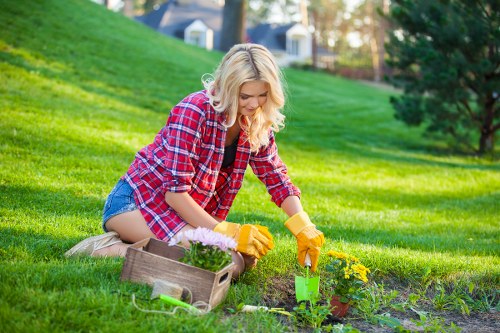
Gardening is a beloved hobby and profession that brings joy, beauty, and sustainability to communities. In Reading, a vibrant town in Berkshire, England, gardeners find a unique blend of urban and rural landscapes that offer diverse opportunities for cultivating green spaces. Whether you're a seasoned gardener or just starting, Reading provides the perfect environment to nurture your gardening passion.
In this comprehensive guide, we'll explore the essentials of gardener reading in Reading, covering everything from local gardening resources to the best areas for gardening enthusiasts. We'll also delve into the top tips and techniques to help you create and maintain thriving gardens.
Reading's climate, soil conditions, and community support make it an ideal place for gardening. With numerous parks, community gardens, and private spaces, there's no shortage of areas to plant flowers, vegetables, and trees. Let's dive into the world of gardener reading in Reading.
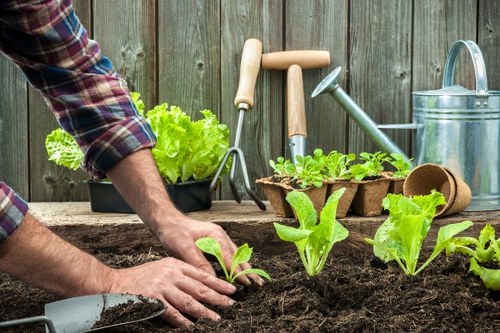
Understanding the Gardening Landscape in Reading
Reading boasts a rich gardening culture, influenced by its historical gardens and modern green initiatives. The town's commitment to sustainability and green living is evident in its numerous community-led projects and public gardens.
One of the standout features of Reading is its variety of garden types. From traditional English gardens to contemporary urban spaces, gardeners can find inspiration and resources to suit their style. Additionally, the proximity to the River Thames provides unique opportunities for water gardening and riparian plant cultivation.
The local government supports gardening through various programs aimed at promoting green spaces and environmental stewardship. These initiatives provide gardeners with access to tools, workshops, and expert advice, fostering a thriving gardening community.
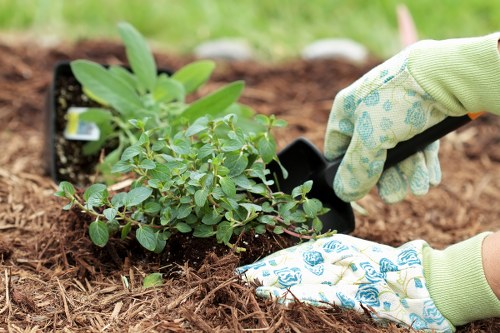
Essential Gardening Resources for Readers in Reading
Local Nurseries and Garden Centers
Reading is home to several reputable nurseries and garden centers that cater to the needs of garden enthusiasts. These establishments offer a wide range of plants, tools, and gardening supplies, ensuring that gardeners have everything they need to create beautiful gardens.
Top Nurseries in Reading
- West Street Garden Centre: Known for its extensive selection of perennials and annuals.
- MyLand Garden & Home: Offers a variety of gardening tools and eco-friendly products.
- Riverside Nurseries: Specializes in water-loving plants and aquatic gardening supplies.
These nurseries also host workshops and events, providing gardeners with valuable knowledge and hands-on experience.
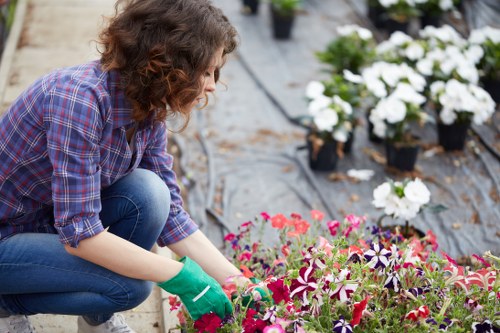
Best Gardening Practices for Reading's Climate
Reading's temperate climate is conducive to a wide range of plants, but understanding local weather patterns is crucial for successful gardening. Here are some tips to help gardeners thrive:
Soil Preparation
Healthy soil is the foundation of any successful garden. In Reading, gardeners should regularly amend their soil with organic matter like compost to improve fertility and drainage.
Plant Selection
- Perennials: Plants like lavender, hostas, and daylilies thrive in Reading's climate.
- Vegetables: Tomatoes, cucumbers, and herbs grow well in the local conditions.
- Trees: Consider native species such as oak, birch, and maple for sustainable growth.
Water Management
Efficient watering practices are essential. Installing rain barrels and drip irrigation systems can help conserve water while ensuring plants receive adequate moisture.
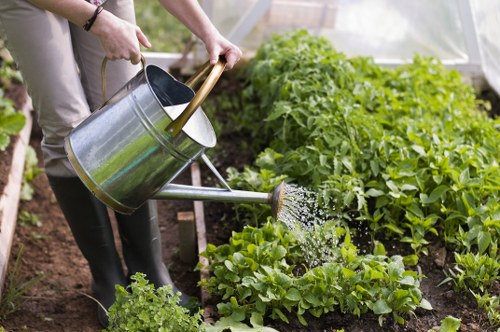
Community Gardens and Green Spaces in Reading
Community gardens are a cornerstone of Reading's gardening scene, offering spaces for individuals to grow their own plants and connect with fellow gardeners.
Popular Community Gardens
- Abbey Gardens: A historic garden featuring a variety of plant species and educational programs.
- Prospect Garden: Offers communal plots for growing vegetables and flowers.
- Whitley Meadows Community Garden: Known for its sustainable gardening practices and workshops.
These gardens not only provide green spaces but also serve as hubs for learning and collaboration, fostering a strong sense of community among gardeners.
Public Parks and Recreational Areas
Reading's public parks, such as Forbury Gardens and Matthew Arnold Park, offer ample opportunities for casual gardening and enjoying nature.
Gardening Techniques for Urban and Suburban Areas
Whether you're gardening in a spacious backyard or a small balcony, Reading offers techniques that cater to various environments.
Container Gardening
Perfect for urban settings, container gardening allows you to grow plants in pots and other containers. This method is flexible and can be adapted to limited spaces.
Best Plants for Containers
- Herbs: Basil, mint, and thyme are ideal for small spaces.
- Flowers: Petunias, pansies, and geraniums add color and vibrancy.
- Vegetables: Cherry tomatoes, peppers, and lettuce can thrive in containers.
Raised Bed Gardening
Raised beds offer improved soil quality and drainage, making them suitable for both suburban and urban gardeners. They also provide easier access and better organization.
Local Gardening Events and Workshops
Staying updated with local events and workshops can enhance your gardening skills and connect you with the community.
Annual Gardening Festivals
Reading hosts several gardening festivals each year, featuring exhibits, plant sales, and expert talks. These events are great opportunities to learn and network.
Workshops and Classes
- Organic Gardening: Learn sustainable practices and pest management.
- Landscape Design: Explore creative ways to design your garden layout.
- Seasonal Planting: Understand the best times to plant various species.
Local Gardening Clubs and Organizations
Joining a gardening club can provide support, resources, and camaraderie among fellow enthusiasts.
Reading Horticultural Society
This society offers regular meetings, plant swaps, and educational seminars for members. It's an excellent way to stay engaged and informed.
Volunteer Opportunities
- Park Maintenance: Help maintain public gardens and green spaces.
- Community Projects: Participate in initiatives like tree planting and garden restoration.
- Educational Outreach: Assist in teaching gardening skills to newcomers.
Gardening Tools and Equipment Essentials
Having the right tools is essential for any gardener. Here are some must-have items for your gardening toolkit:
Basic Tools
- Hand Trowel: For digging and planting small plants.
- Pruning Shears: Essential for trimming and shaping plants.
- Garden Fork: Useful for loosening soil and turning compost.
Advanced Equipment
- Wheelbarrow: Helps transport soil, plants, and tools efficiently.
- Greenhouse: Extends the growing season and protects plants from harsh weather.
- Compost Bin: Facilitates the recycling of organic waste into valuable fertilizer.
Maintenance and Storage
Proper maintenance of your tools ensures their longevity. Regular cleaning and proper storage prevent rust and damage, keeping your toolkit in top condition.
Sustainable Gardening Practices in Reading
Embracing sustainability in gardening not only benefits the environment but also enhances the health of your garden.
Organic Gardening
Using organic methods avoids harmful chemicals, promoting a healthier ecosystem. Practices include using compost, natural pest control, and crop rotation.
Water Conservation
- Rainwater Harvesting: Collecting rainwater reduces reliance on tap water.
- Mulching: Retains soil moisture and suppresses weeds.
- Drought-Resistant Plants: Selecting plants that require less water.
Biodiversity
Encouraging biodiversity attracts beneficial insects and pollinators, enhancing plant health and resilience.
Gardener Reading Resources and Literature
Staying informed through reading is vital for continuous improvement in gardening. Here are some recommended resources:
Books and Magazines
- "The Garden Primer" by Barbara Damrosch: A comprehensive guide for gardeners of all levels.
- "Organic Gardening for Beginners" by Lorene Edwards: Perfect for those starting their gardening journey.
- "Gardeners' World Magazine": Offers practical tips, plant profiles, and seasonal advice.
Online Resources
- Reading Local Gardening Blogs: Stay updated with the latest trends and tips.
- Online Forums: Engage with other gardeners, share experiences, and seek advice.
- Educational Websites: Access free courses and tutorials on various gardening topics.
Workshops and Seminars
Participating in local workshops enhances your knowledge and provides hands-on experience. Look for events hosted by nurseries, community centers, and gardening clubs.
Top 15 Nearby Areas to Reading for Gardeners
Reading's surrounding areas offer additional gardening opportunities with unique features. Here are the top 15 nearby areas:
- Wokingham: Known for its extensive parks and community gardens.
- Basingstoke: Offers a mix of urban and rural gardening spaces.
- Maidenhead: Features beautiful riverside gardens and walking trails.
- Newbury: Home to historic gardens and vibrant gardening clubs.
- Bracknell: Provides numerous public gardens and green initiatives.
- Highclere: Famous for its stunning estates and manicured lawns.
- Windsor: Offers regal gardens and botanical gardens.
- Reading West: Known for its diverse plant offerings and gardening events.
- Finchampstead: Features private gardens open to the public during events.
- Sonning: A picturesque village with charming home gardens.
- Earley: Offers community-led gardening projects and workshops.
- Tilehurst: Home to several parks and recreational garden spaces.
- Crowthorne: Features residential gardens and quiet green spaces.
- Bucklebury: Known for its sustainable gardening practices and organic farms.
- Kennet: Offers scenic gardens and nature walks ideal for gardening enthusiasts.
Each of these areas brings something unique to the table, from historic estates to modern green projects, providing ample inspiration and opportunities for gardeners in and around Reading.
Conclusion
Gardener Reading in Reading is a thriving community supported by rich resources, diverse gardening spaces, and a strong commitment to sustainability. By leveraging local nurseries, participating in community gardens, and staying informed through various resources, gardeners can cultivate beautiful and healthy green spaces.
Whether you're exploring the extensive parks of Wokingham or the historic gardens of Newbury, the surrounding areas offer endless inspiration and opportunities for growth. Embrace the gardening culture in Reading and contribute to the town's green legacy.
Frequently Asked Questions
1. What are the best times of year to start a garden in Reading?
The best times to start gardening in Reading are spring and autumn. Spring allows you to plant a variety of flowers and vegetables as the weather warms, while autumn is ideal for preparing your garden for the winter and planting hardy perennials.
2. Where can I find organic gardening supplies in Reading?
Reading has several nurseries and garden centers that offer organic gardening supplies. West Street Garden Centre and MyLand Garden & Home are great places to start, providing organic fertilizers, pest control products, and sustainable gardening tools.
3. Are there any community gardening programs available in Reading?
Yes, Reading has numerous community gardening programs. Abbey Gardens and Prospect Garden are popular community spaces where you can rent plots, attend workshops, and participate in community-led gardening projects.
4. How can I participate in local gardening events in Reading?
To participate in local gardening events, stay updated through local nurseries, the Reading Horticultural Society, and community centers. These organizations regularly host festivals, workshops, and seminars that gardeners can attend.
5. What sustainable gardening practices are recommended for Reading?
Sustainable gardening practices in Reading include using compost, installing rainwater harvesting systems, practicing crop rotation, and selecting drought-resistant plants. These methods help conserve resources and promote a healthier garden ecosystem.